Introduction
Amazon Web Services (AWS) has established itself as a cornerstone in the cloud computing industry, serving a vast and varied clientele that spans innovative startups to large Fortune 500 companies. This article delves into AWS's significant market share and its extensive customer base, highlighting the platform's scalability, flexibility, and role in advancing digital transformation. It examines how different industries, including technology, finance, healthcare, and education, leverage AWS's robust infrastructure and services to address unique challenges and drive growth.
Additionally, the article explores AWS's impact on sectors such as media and entertainment, retail, and financial services, showcasing how the platform supports these industries in optimizing operations, enhancing customer experiences, and fostering innovation. Through comprehensive insights into AWS's capabilities and applications, this article underscores the platform's pivotal role in shaping the future of cloud computing and digital transformation across various sectors.
Market Share and Customer Base
Amazon Web Services (AWS) stands as a dominant force in the cloud computing sector, boasting a substantial share of the global market. With a broad clientele spanning from innovative startups to established Fortune 500 enterprises, AWS has cemented its reputation as a reliable and versatile platform tailored to diverse business needs. The platform's robust scalability and flexibility are key attributes that appeal to organizations seeking to enhance and streamline their operations.
In the domain of cloud computing, AWS provides a wide range of solutions that address different technological needs. This includes computing power, storage solutions, and sophisticated application programming interfaces (APIs) that facilitate seamless integration and development. AWS's ability to deliver customized cloud solutions has proven essential, especially for companies looking to grow effectively and innovate swiftly.
Moreover, AWS's role in the technology landscape is underscored by its ability to support businesses in leveraging advanced technologies such as artificial intelligence (AI) and machine learning (ML). This capability enables organizations to extract valuable insights and drive data-driven decision-making processes, thereby fostering a culture of innovation and continuous improvement. 'The widespread adoption of AWS across various industries highlights its pivotal role in shaping the future of digital transformation.'.
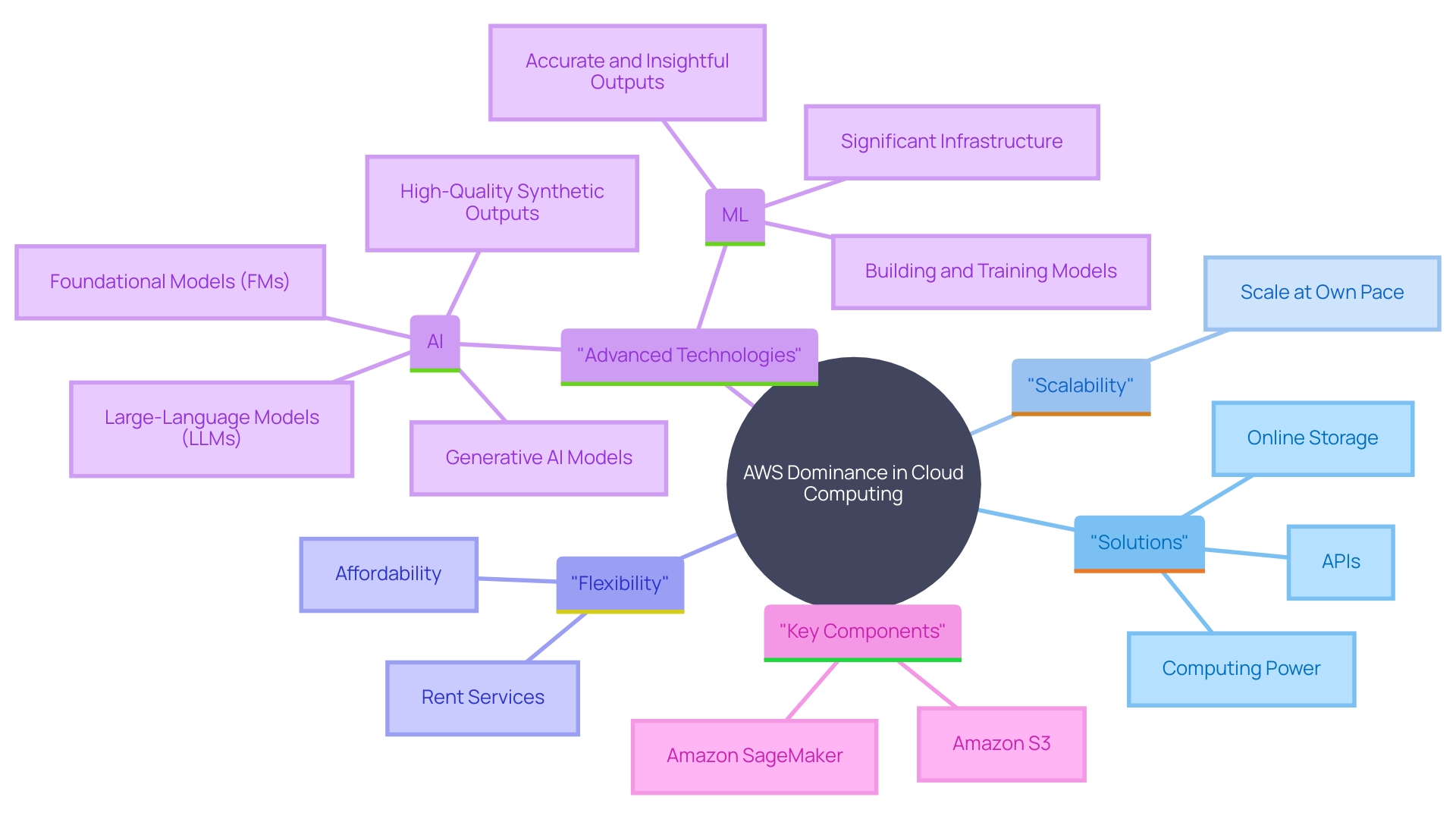
Industries Using AWS
AWS caters to a diverse range of industries, including technology, finance, retail, healthcare, and education, each leveraging AWS's extensive infrastructure and services to address their unique challenges. For instance, in the financial industry, AWS enables complex data analytics and machine learning applications, helping institutions like BMW Group balance innovation with regulatory compliance and customer security. In the education field, AWS supports the seamless hosting of e-learning platforms, enhancing the learning experience and operational efficiency. Additionally, AWS's robust cloud services are instrumental in developing microgrid solutions for the renewable energy market, facilitating sustainable energy management in residential buildings, schools, and manufacturing centers. By providing the broadest and most comprehensive range of capabilities in AI, IoT, analytics, and computing, AWS enables organizations to make improved, quicker decisions and enhance their operations, fostering growth and efficiency across various sectors.
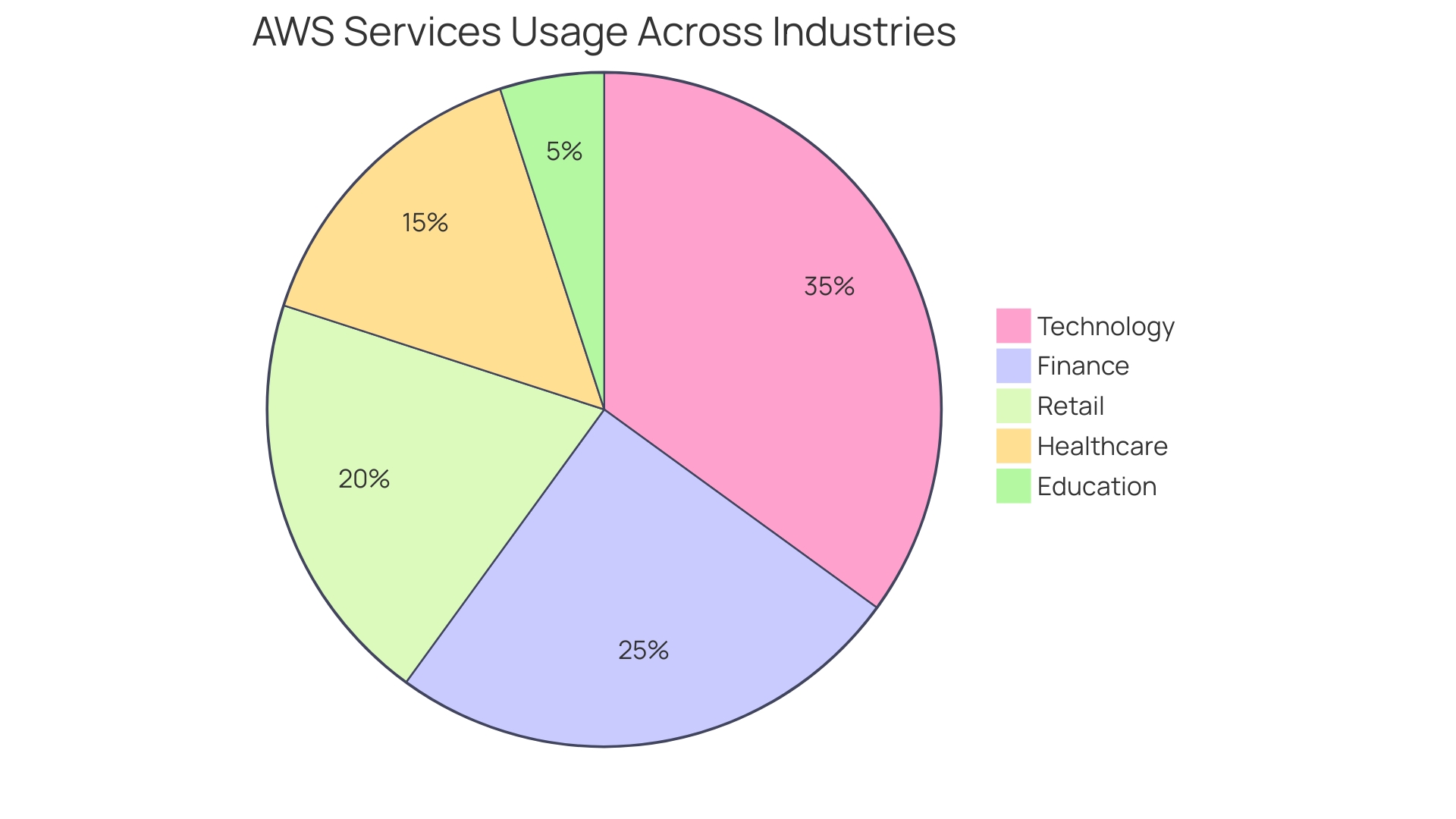
Healthcare and Pharmaceuticals
The healthcare sector utilizes AWS for its strong and compliant infrastructure, which is crucial for handling sensitive patient information. 'AWS services enable healthcare providers to improve patient care through advanced information analytics, telemedicine, and electronic health records (EHR).'. For instance, federated learning on AWS addresses the critical challenge of integrating legacy systems with newer collections, thereby facilitating better decision-making and faster processing across hospitals and institutes. This capability is especially crucial given the heterogeneous nature of life sciences collections, which require versatile storage solutions and logical information views.
In the pharmaceutical sector, AWS accelerates drug discovery and clinical trials by providing scalable cloud computing resources. Companies such as Vertex Pharmaceuticals have utilized machine learning on AWS to enhance the examination of experimental information, including microscope images, significantly accelerating the identification of possible drug candidates. This technological edge is vital for maintaining a competitive advantage and ensuring long-term, sustainable value in the life sciences industry.
Moreover, AWS’s new models and integrations, such as those in Amazon Bedrock, offer healthcare and pharmaceutical companies the flexibility to choose and combine the best AI models for their specific needs. This adaptability not only enhances data-driven decision-making but also expedites innovation and operational efficiency across the board.
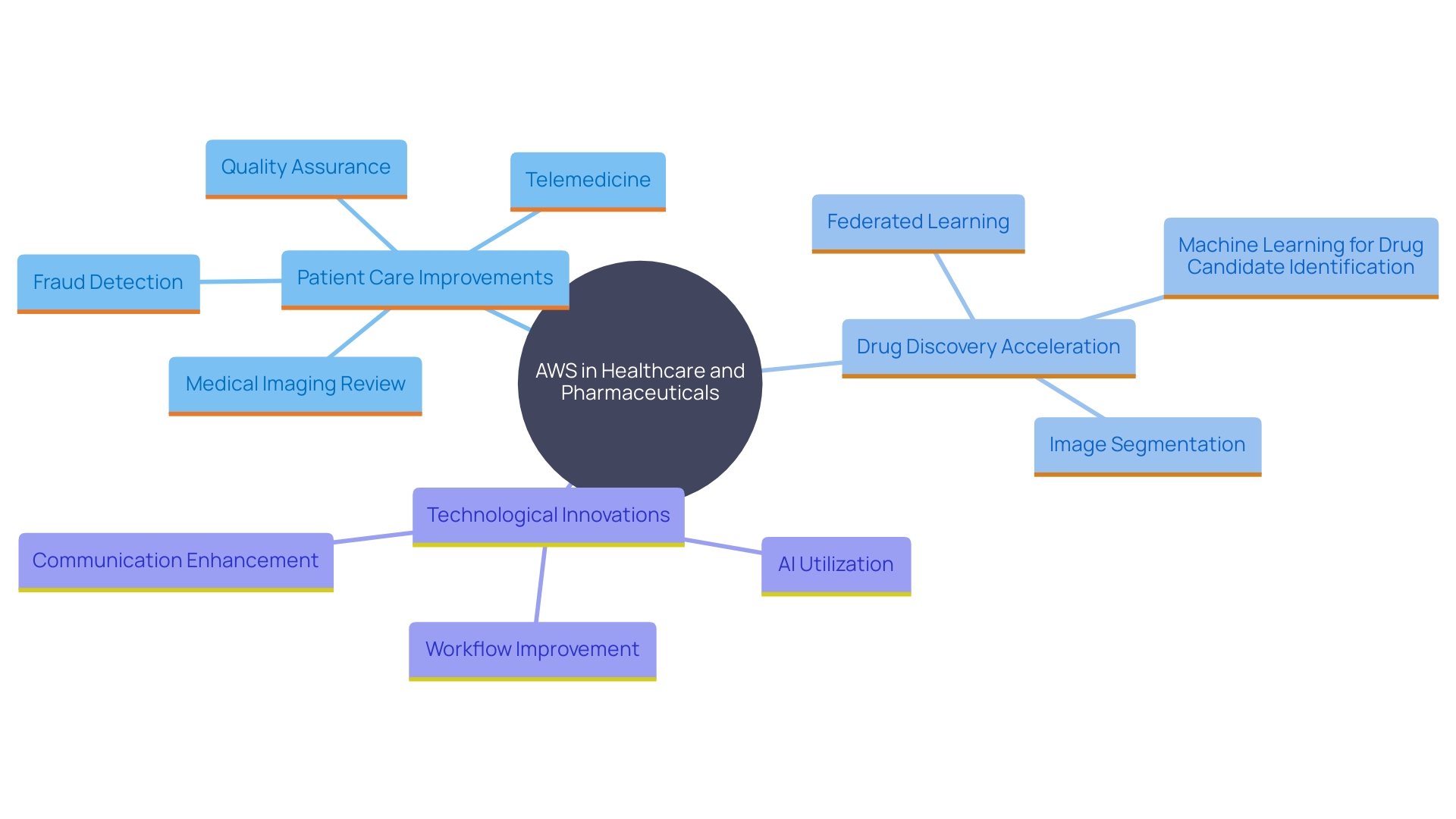
Financial Services
Financial institutions increasingly rely on AWS for secure and scalable computing solutions. AWS supports complex financial transactions, fraud detection, and risk management analytics, enabling banks and financial organizations to optimize their operations and enhance customer experiences. With AI-driven capabilities, AWS automates financial workflows by summarizing documents, extracting data, and categorizing information from email attachments, which improves efficiency, reduces costs, and increases data accuracy.
Fraud detection is a crucial element of financial operations, and AWS's advanced computational algorithms play a pivotal role in combating credit card fraud. In 2023, fraudulent credit card transactions in the United States are estimated to reach 150 million, highlighting the need for robust security measures. AWS facilitates real-time transaction pre-authorization processes, ensuring that only legitimate transactions proceed, thereby protecting retailers and customers from fraud.
Additionally, AWS helps financial institutions maintain regulatory compliance and streamline manual processes that are often time-consuming and error-prone. By leveraging AWS's cloud-based solutions, financial firms can focus on higher-value tasks, speed up processes, and drive continuous improvement, ultimately reducing operational costs while maintaining high security standards.
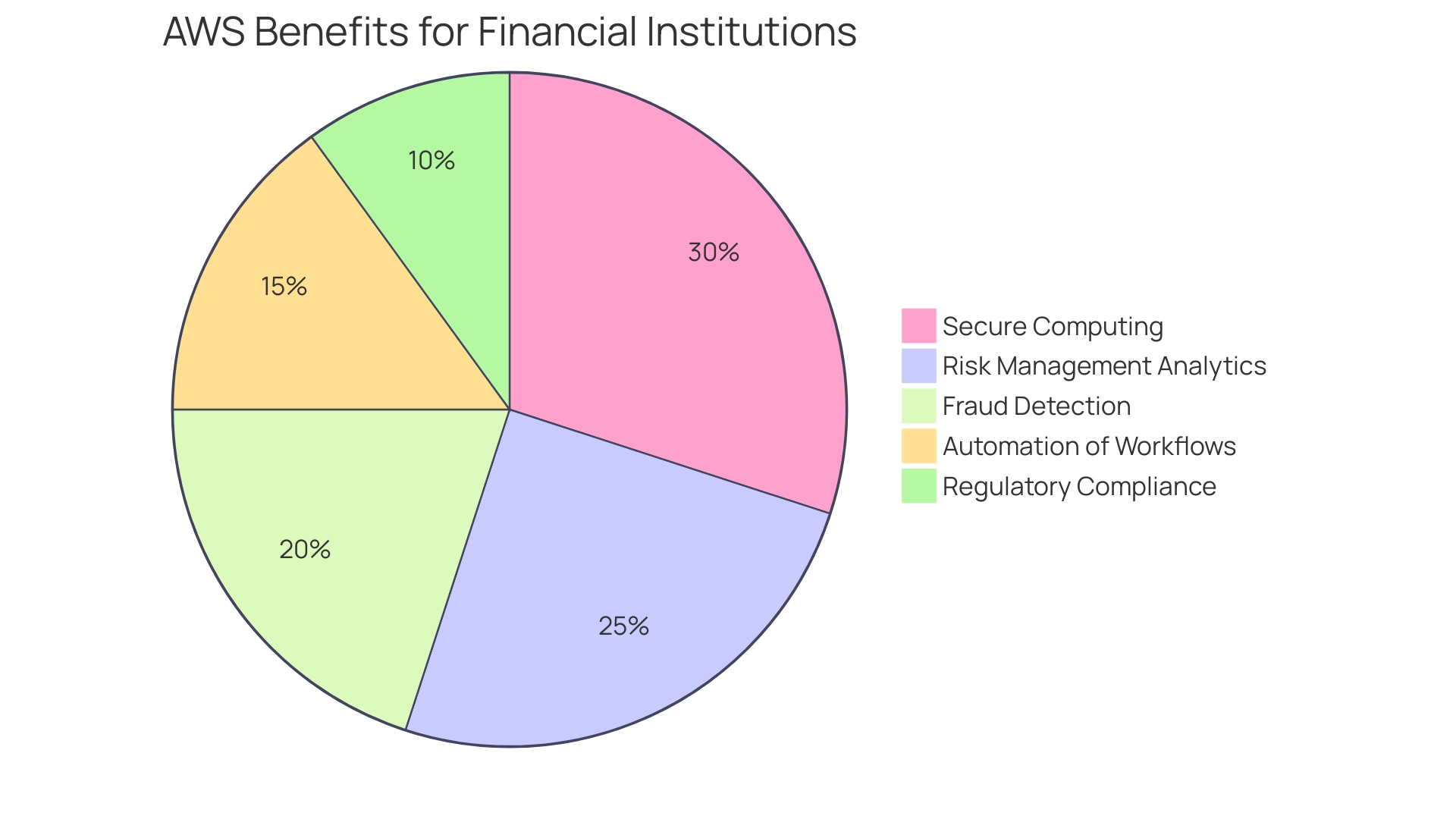
Media and Entertainment
'In the media and entertainment sector, AWS plays a crucial role in content delivery and streaming solutions.'. Companies leverage AWS to store and distribute large volumes of media content globally, ensuring seamless access for users. AWS’s capabilities extend to video processing, transcoding, and live event broadcasting, making it an indispensable tool for media companies aiming to innovate and engage audiences. For instance, Amazon Music utilizes AWS to optimize search functionality for its vast library of over 100 million songs and millions of podcast episodes, employing AI models for real-time spellcheck and vector search to enhance user experience. Similarly, ReelStar, a blockchain-based platform, integrates AI tools to democratize content distribution and monetization, empowering creators to reach global audiences. AWS’s continuous advancements, such as new AI models and capabilities, further support these innovations, enabling media companies to remain agile and responsive to market demands.
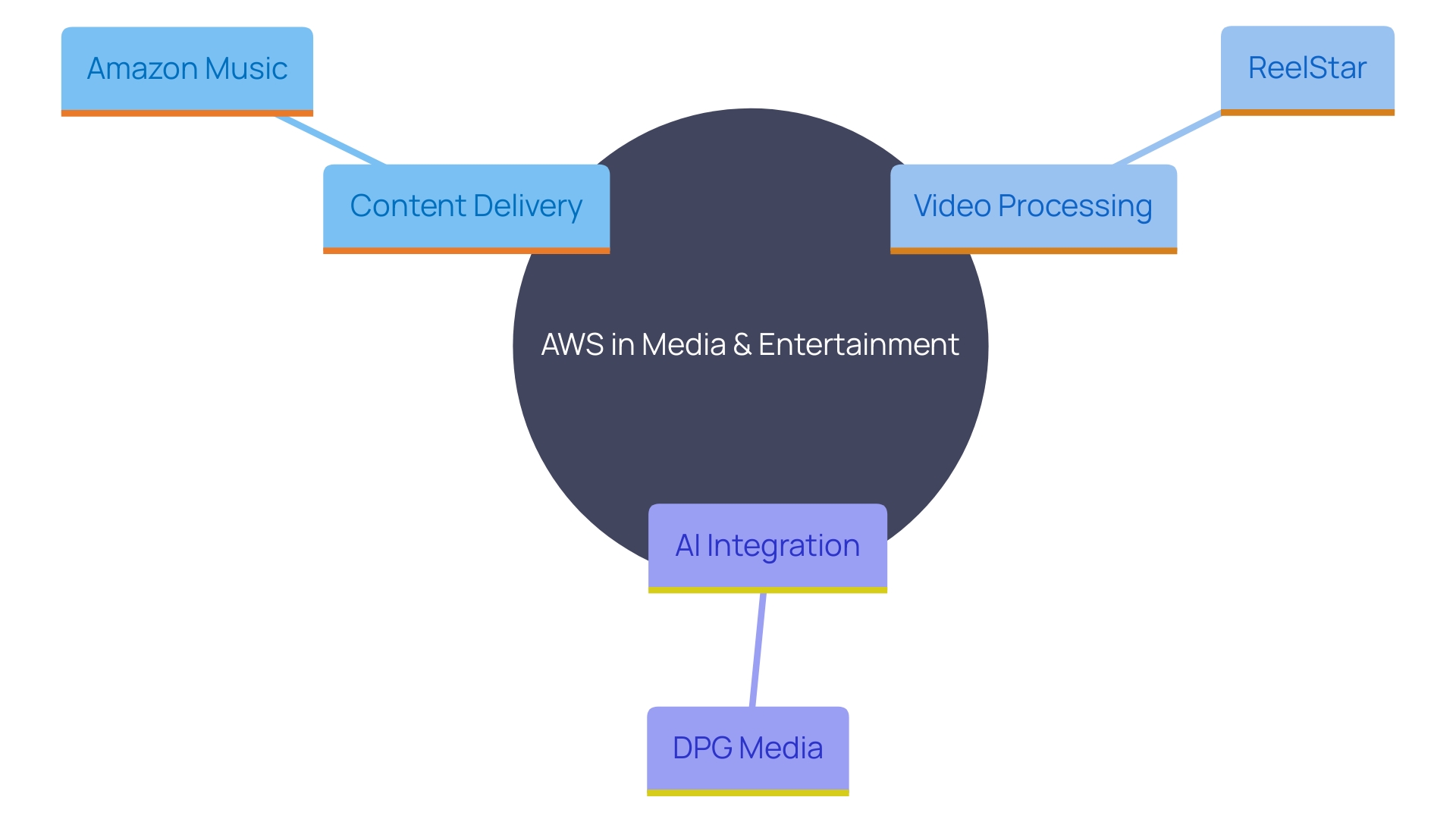
Retail
Retail businesses are increasingly utilizing AWS to revolutionize customer experiences through personalized shopping and data-driven marketing strategies. By utilizing AWS's extensive range of tools, retailers can manage inventory, implement e-commerce solutions, and analyze customer information effectively. This integration allows them to optimize operations and swiftly adapt to market dynamics.
AWS's scalability is crucial for handling seasonal spikes in demand without compromising service quality. For instance, Amazon Personalize uses three distinct types of data—user activity, item details, and contextual information—to deliver highly relevant user experiences. This not only improves customer retention and satisfaction but also provides a significant competitive advantage.
In the current retail environment, where precise consumer information is paramount, AWS assists marketers in unifying and simplifying disparate consumer records. 'According to Experian, up to 94% of organizations suspect inaccuracies in their consumer information, with duplication rates between 10% and 30% for those lacking quality improvement initiatives.'. AWS addresses these challenges by offering a unified platform that enhances visibility and operational efficiency.
Recent innovations, such as Amazon's Second Chance Store in London, demonstrate the company's commitment to enhancing customer experiences. This physical store offers shoppers access to quality returned products, showcasing AWS's capability to support diverse retail strategies.
In summary, AWS's robust infrastructure and advanced analytics empower retailers to deliver personalized experiences, maintain operational efficiency, and stay resilient amid market challenges.
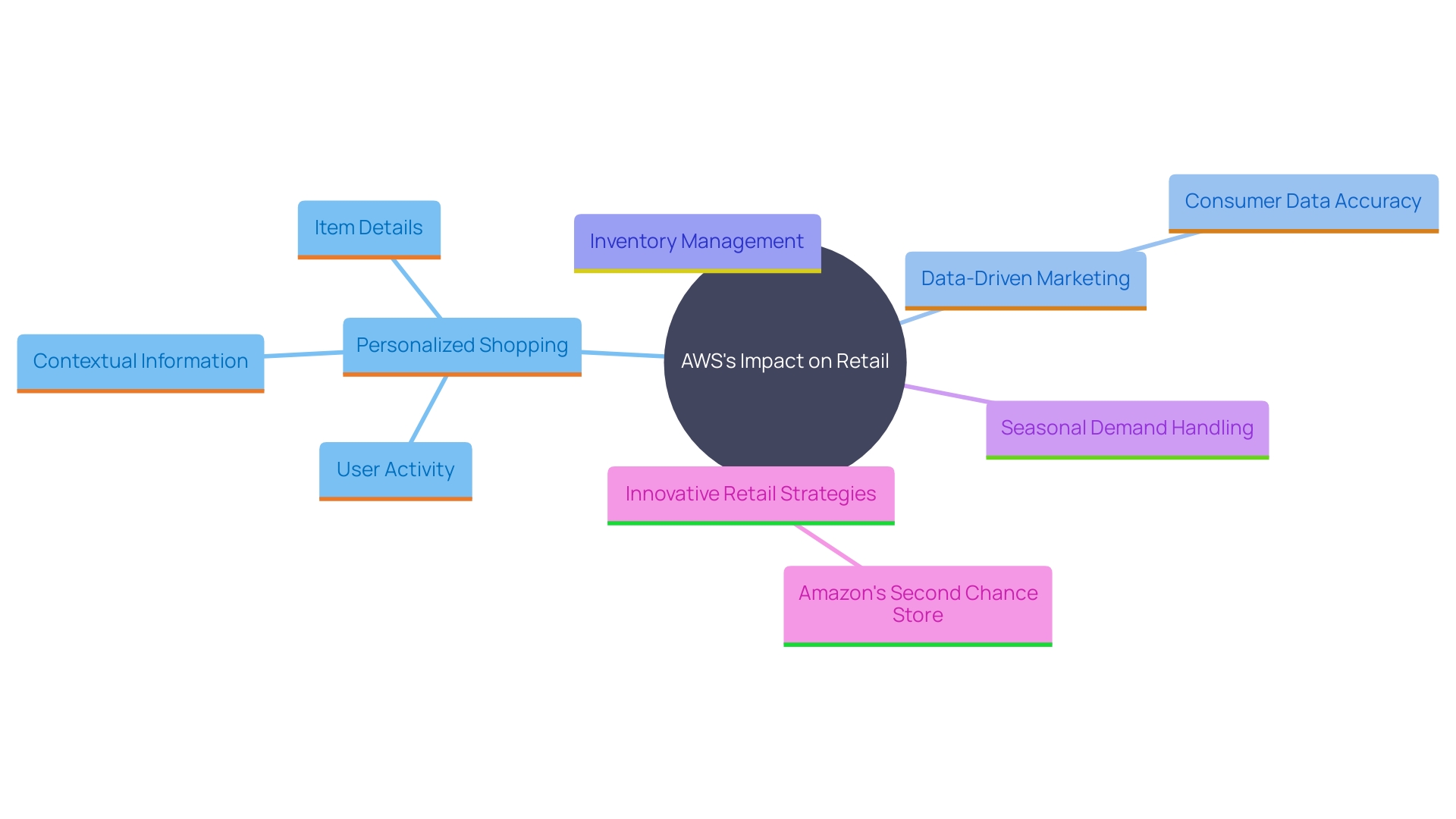
Education and E-Learning
The education field has increasingly turned to AWS to enhance online learning and digital classrooms. Educational institutions leverage AWS to host e-learning platforms, manage student data, and conduct research. For instance, innovative applications like Amazon Bedrock enable teachers to create course materials and generate assignments using large language models. This flexibility allows schools and universities to scale resources according to demand, ensuring a seamless learning experience for students. The AWS Education Accelerator further supports EdTech startups in developing solutions that improve educational outcomes, addressing challenges such as student engagement and operational inefficiencies. By adopting AWS, the education sector can meet the evolving needs of students and educators, providing a robust and adaptable infrastructure for modern learning environments.
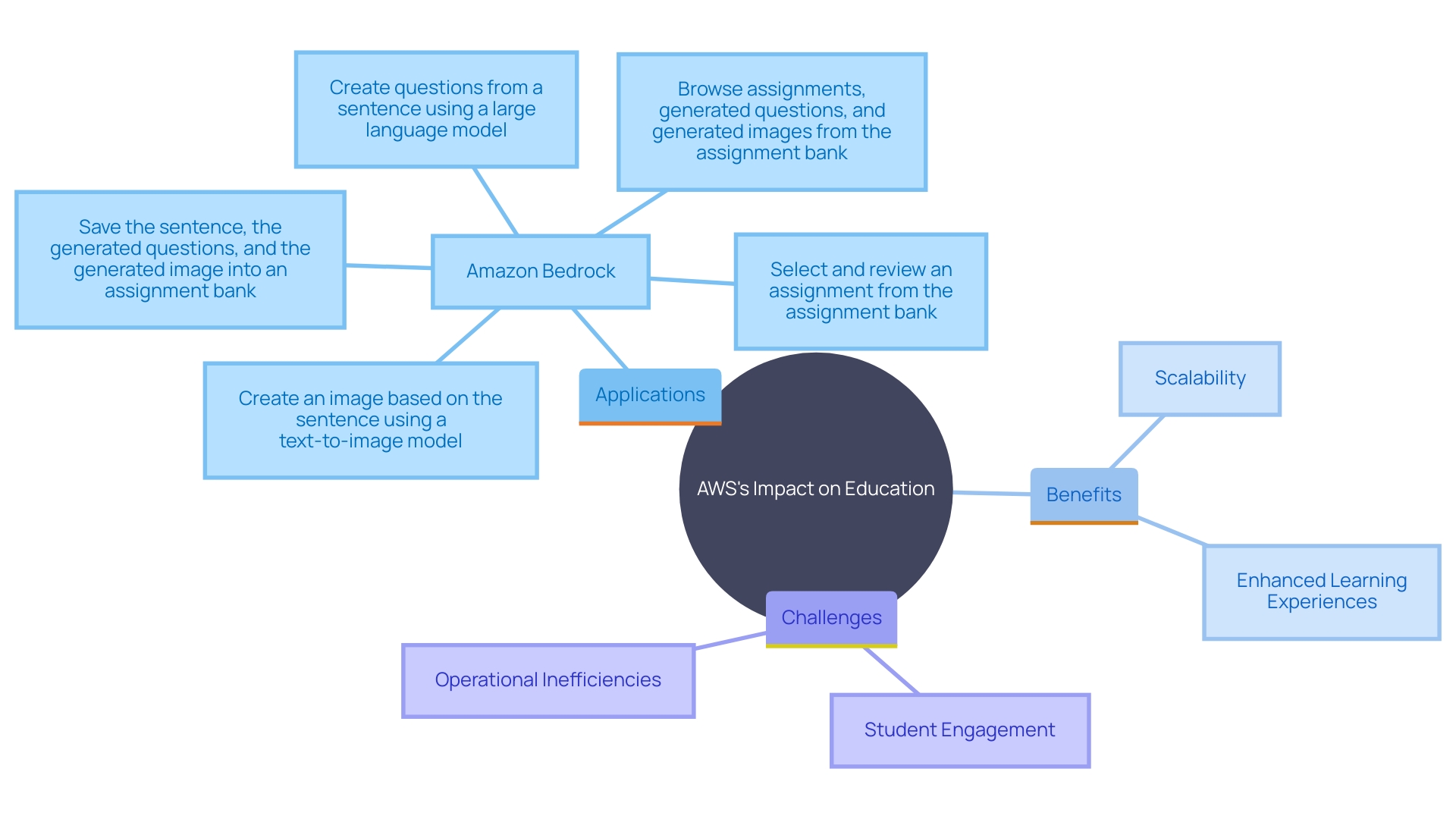
Conclusion
Amazon Web Services (AWS) has firmly established itself as a leader in the cloud computing landscape, demonstrating its capacity to cater to a wide array of industries and organizational needs. The platform’s significant market share is indicative of its reliability and versatility, enabling businesses—from startups to Fortune 500 companies—to leverage its extensive services for enhanced scalability and operational efficiency. By providing tailored solutions that support advanced technologies such as artificial intelligence and machine learning, AWS empowers organizations to innovate and optimize their processes, thereby driving digital transformation across various sectors.
The diverse applications of AWS in industries such as finance, healthcare, media and entertainment, retail, and education illustrate its critical role in addressing unique challenges. Financial institutions utilize AWS for secure transactions and fraud detection, while healthcare providers benefit from its compliant infrastructure for managing sensitive patient data. In the media sector, AWS facilitates seamless content delivery and enhances user experiences through advanced analytics.
Retailers harness its capabilities to implement personalized customer experiences and streamline inventory management. Educational institutions leverage AWS to enhance online learning environments and support innovative teaching methods.
In conclusion, AWS not only supports operational efficiency and innovation across multiple sectors but also plays a pivotal role in shaping the future of cloud computing. Its extensive and adaptable infrastructure enables organizations to respond effectively to market demands, fostering a culture of continuous improvement and growth. As industries continue to evolve, the strategic integration of AWS solutions will remain vital for organizations aiming to thrive in an increasingly competitive landscape.




